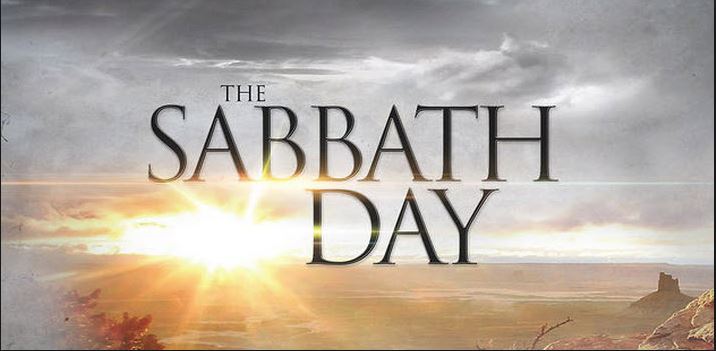I have dealt with the Sabbath in three different ways in past posts. One was its continuing validity under the New Covenant. The Second was the proper observing of it. And the third has been to defend the Fist-Day Sabbath from attack by seventh-day sabbatarians, such as the Seventh-Day Adventists. My emphasis this time will be on its continuing validity.
One form of attack on the Sabbath is from an erroneous application of the true principle that the Mosaic ceremonial laws were fulfilled in Christ's atoning work, and are, therefore abrogated. This is why we no longer sacrifice lambs or treat some foods as unclean (another issue with the SDA's). The reason that the application of this true principle to the Sabbath is erroneous is because the Sabbath was not part of the ceremonial law (thought there are laws regarding the Sabbath).
Before I address that, there is one side issue I want to address. I often hear, "Jesus is our Sabbath." Really? Where does Scripture say that? Did Jesus perfectly fulfill and complete the Law? Of course. But in what way is the Fourth Commandment different from the other nine in that respect? Is Jesus our not-murderer? Does that mean that we are no longer bound by the Sixth Commandment? Obviously not! "Jesus is our Sabbath" is just one of those slogans that has been repeated so often without challenge that it is merely accepted as a truism. Well, I am challenging it. Show me the Scripture.
But back to my intended point.
What this objection fails to acknowledge is that the Sabbath wasn't a ceremonial ordinance (though it did gain some ceremonial adornments in the Mosaic economy). Rather, it was a creation ordinance: "On the seventh day God finished His work that He had done, and He rested on the seventh day from all His work that He had done. So God blessed the seventh day and made it holy, because on it God rested from all His work that He had done in creation" (Genesis 2:2-3). The Sabbath day had its origin, not with Moses, but with God in the original creation! That's why the commandment says, not "observe," but "remember" (Exodus 29:8). One remembers by looking back on something, not by beginning it.
Furthermore, we know that the Sabbath became an Israelite custom before it was inaugurated by Moses. Note Exodus 16:23, 25-26, four chapters before the Fourth Commandment: "Tomorrow is a day of solemn rest, a holy Sabbath to the Lord; bake what you will bake and boil what you will boil, and all that is left over lay aside to be kept till the morning. [But] eat it today, for today is a Sabbath to the Lord; today you will not find it in the field. Six days you shall gather it, but on the seventh day, which is a Sabbath, there will be none." We have Moses's applying the Sabbath to the collection of manna, even before the commandment is given in chapter 20. Therefore, it was a practice among the people already!
I don't know why there is a special hatred of the Sabbath among today's Christians, even among those who claim to be Bible-believing. Why do we not want a day to enjoy the Lord and our families, without the burdens of our regular lives, as lawful as those burdens might be? God expects one day out of seven focused on Him, not on earning money or secular entertainment. I consider that to be a wonderful gift, not a restriction!
NEW CREATION IN 2 PETER
21 hours ago





1 comment:
I do read the articles and appreciate the Fist-Day Sabbath celebration. While rare it has been enjoyed at some churches - usually after a discussion on pew cushion covers and/or carpet colors. Yours in kind humor, Derek
Post a Comment